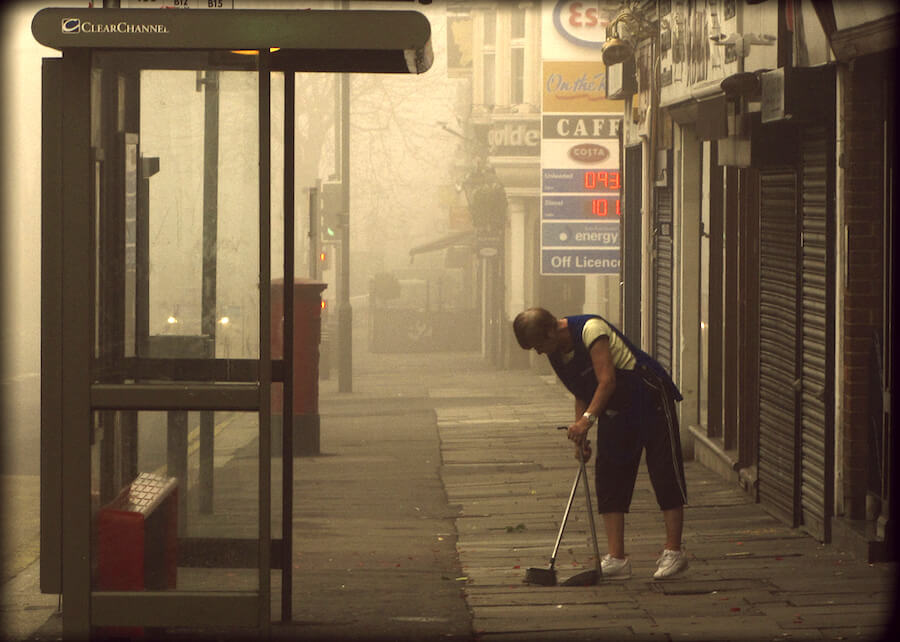 May 12, 2016
May 12, 2016
Buses in crisis – What’s being done about the UK’s struggling bus service?

According to Stephen Joseph, Chief Executive of the Campaign for Better Transport, more people commute to work by bus than by all other public transport combined. He goes on to explain that “for millions of people buses provide everyday transport and the decisions made about buses and their funding matters a lot to many people in their everyday lives.”
Joseph’s comments are the foreword in a publication entitled Buses in Crisis: A report on bus funding across England and Wales 2010 – 2016. Over the past six years, bus passenger journeys have fallen in several council areas, prompting concern over funding cuts and fare hikes.
Many believe that the importance of buses is being forgotten about and more needs to be done to protect vital routes and services. However, could it be argued that buses are out-dated and no longer a viable means of transport in the 21st century?
The case for bus services

Image credit: Nick Rice via Flickr. Licensed under Creative Commons 2.0
“Young people need reliable and affordable bus services in order to access education and employment,” says Joseph, who argues that buses are vital if the Government is to achieve its target of three million apprenticeships.
He comments on older people too, saying “buses are a lifeline away from isolation and loneliness, giving them access to social activities, health services and shops. Accessible public transport is often crucial in keeping disabled people connected to their communities.”
What’s more, buses are often the only form of transport in rural areas, providing essential travel for work, education and independence.
In an article for the Guardian, John Harris also makes a compelling case for buses. “The bus remains the most democratic form of transport (no first class here), and does things that trains – and cars – simply cannot,” he says.
Continued cuts to bus services

Image credit: Lloyd Rich via Flickr. Licensed under Creative Commons 2.0
In spite of these convincing arguments, councils across the country have continued to cut funding for bus services. Research by the Campaign for Better Transport says subsidies to routes have been reduced by £78 million since 2010, with another £27m under threat this year.
Martin Abrams, from the Campaign for Better Transport, said: “Up and down the country utterly devastating cuts are now being inflicted on our vital bus services on a par with the swingeing and misguided cuts the government and Dr Beeching made to our rail network which decimated services back in the 1960s.”
Beeching’s impact on the country’s rail network, which not only led to the closure of over 2,000 stations and poorer public transport for thousands of people, but also resulted in the loss of nearly 70,000 jobs, is something Harris picks up on too.
But while Transport Minister Andrew Jones said that the government protected around £250m of funding for services in England as well as £7.6m in support of 37 local transport schemes in rural areas, there could be evidence to suggest bus cuts are justified.
The diminishing demand for buses

Image credit: Ekaterina Nosenko via Flickr. Licensed under Creative Commons 2.0
BBC News found that out of 89 transport authority areas, just 29 reported a rise in the number of bus passenger trips. The biggest percentage drop was in Redcar and Cleveland, where figures indicated 27 per cent fewer bus journeys in 2014-15 compared with 2009-10.
On top of that, the government’s Bus Reform Workshops Background Document claims “the number of passenger journeys on local bus services has drastically declined since its peak in the post-war years, with a 59 per cent reduction in the number of journeys completed between 1950 and 2013/14.”
The report also states that the distance travelled by bus has also gradually declined from the post-war years to the present day, due in large part to rising car ownership levels.
In response, campaigners say that cuts and fare hikes are to blame for dwindling passengers. However, there could be a solution that benefits the bus passengers requiring essential transport as well as governments and local councils wanting to keep costs down.
The possibility of ‘total transport authorities’

Image source: Annual Bus Statistics 2014/2015. Licensed under Open Government License 3.0
Having found that bus use outside of London had fallen by 36.5 per cent since services were deregulated in 1986, the Institute For Public Policy Research (IPPR) called for the establishment of “total transport authorities,” which would take responsibility for routes, including those run by commercial operators and not-for-profit companies, across wide geographic areas, much like the capital.
The IPPR recognised the fact that the government’s squeeze on local authority spending has had a knock-on effect on councils’ ability to support unprofitable bus services. However, by taking cues from the capital, authorities across the country could take on regulatory powers over bus services.
“We believe that there is a compelling case for the creation in towns and rural areas of new ‘total transport authorities’ that would bring together decision-making on bus services and other sustainable, public transport in travel-to-work areas,” notes the IPPR.
“These bodies should be empowered to take on regulatory powers to franchise bus routes in their area, bring together all public funding for buses and other sustainable public transport – initially from local authorities but, in time, from other public bodies – in their region, and encourage innovation and cooperation by bus operators.”
What is being done about the UK’s struggling bus service?
Even though bus passenger journeys are going down, this could be explained by fewer services, funding cuts, and price hikes. After all, the facts and figures prove that a huge number of people are still completely dependent on bus services for employment, independence, and leisure.
While it is somewhat understandable that the government needs to save money wherever possible, this does not mean to say buses are “simply a local issue to be devolved of responsibility by Whitehall,” according to the Campaign for Better Transport.
However, by establishing London-like ‘total transport authorities,’ which are now being adopted in Greater Manchester and possibly also in Tyne and Wear, West Yorkshire and Cornwall, decisions over the future of buses can be influenced by those who need them most.







